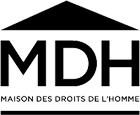
The Carter Center, DRC
Joined June 2015
Promotes accountability, transparency and the respect of human rights through strengthening the capacities of both civil society actors and government
To contribute to the development and strengthening of an inclusive democratic society and to the protection and realization of human rights in the DRC, The Carter Center decided to establish an office in Kinshasa following the 2006 transitional elections.
In Kinshasa, The Carter Center supports civil society in developing the technical and organizational capacity to work together to monitor and report on critical human rights issues, particularly through its support to the Human Rights House. The Carter Center aims to encourage dialogue, coordination, and collaboration between key stakeholders. It also supports local organizations in the development and maintenance of a solidarity-based Human Rights Defenders Alert System.
In addition to its human rights monitoring and protection program, The Carter Center has two targeted intervention areas: election monitoring and natural resource governance, with a particular focus on industrial mining governance.
Following involvement in the 2011 presidential and legislative elections in the DRC, The Carter Center launched a pilot project working with local Congolese civil society organizations to strengthen their capacity to advocate for more credible electoral processes based on international obligations for democratic elections. Based on the success of these past efforts, The Carter Center now plans to expand and extend this program.
The governance of resources is a critical challenge in the DRC. The DRC has a wealth of natural resources, including rich reserves of copper, cobalt, coltan and other valuable minerals. However, the mining industry has returned only a fraction of its real value and has done little to reduce the national debt or improve the living conditions of millions of Congolese people. In cooperation with selected local partners, The Carter Center works to improve transparency and accountability in this important sector of the DRC economy.
